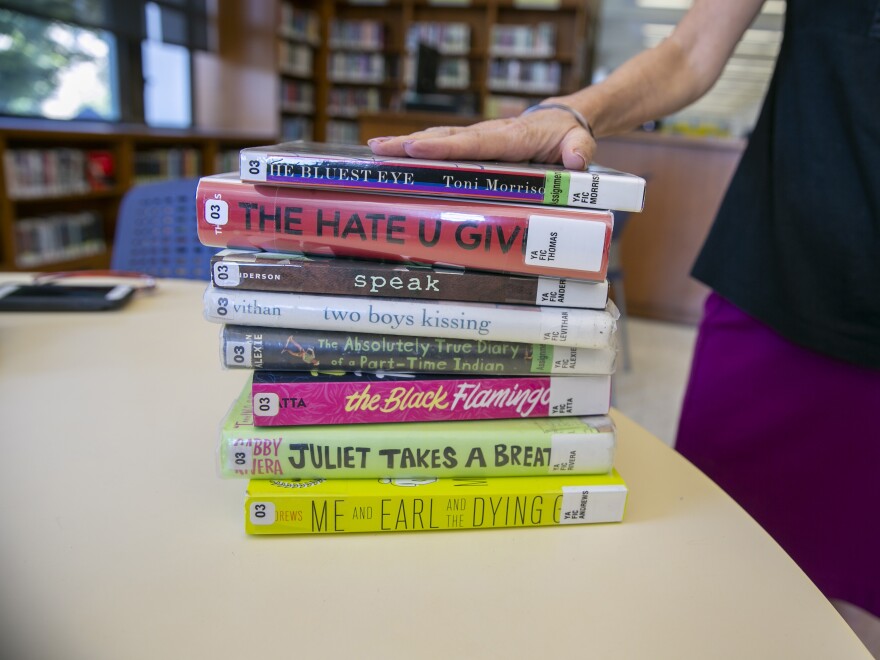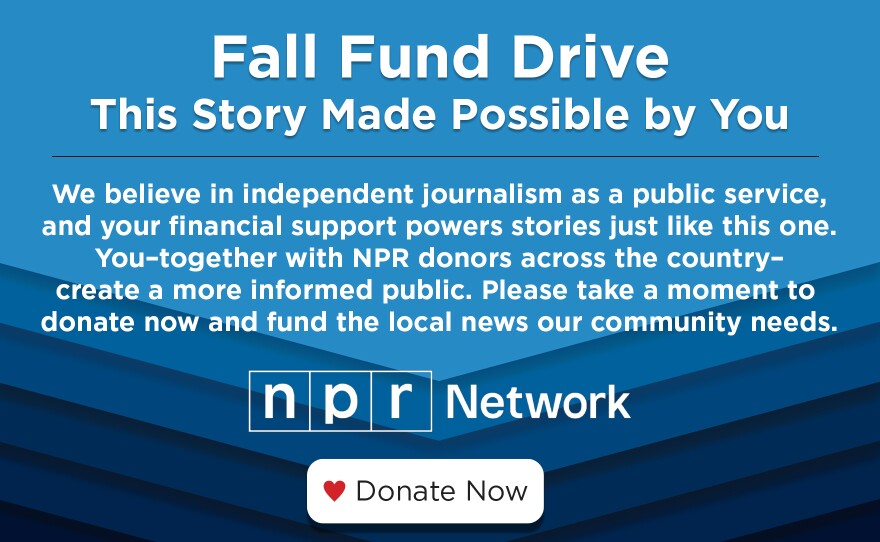When Banned Books Week started some 40 years ago, the idea was to push back against a surge in complaints or attempts to ban specific books from libraries, schools, bookstores and other places.
Ask a librarian today, however, and that may sound more like 2023 than 1982.
"We've really seen an escalated amount of books that are being challenged or banned — or requested to do both of those over, probably, the last two to three years," said Bloomington Public Library Director Jeanne Hamilton.
According to data from the American Library Association (ALA) from January to August, there have been nearly 700 challenges to library materials or services across the country and nearly 2,000 individual works have been challenged as well — an uptick from the same reporting time last year.
In a recent interview with WGLT, Illinois Library Association Executive Director Cynthia Robinson noted these calls for certain books to pulled out of libraries or classrooms are not coming from a massive wave of concerned individuals.
"It's one group, sharing information, supplying materials, probably providing funding. It's very focused: The challenges that we're seeing are the same books, the same titles, the same lists that are going around the country," Robinson said. "And they are very much focused on any books that are about LGBTQ individuals and people of color in general."
Robinson added that in Illinois, "it's not as bad as it is in other states."
Earlier this year, Illinois became the first state in the nation to pass legislation that requires libraries and library systems to adopt either the American Library Association’s Library Bill of Rights, or some other written statement prohibiting the practice of banning books or other materials on "partisan or doctrinal" grounds. Otherwise, state grant funding can be withheld.
"I have to say library workers really appreciate this legislation. It just makes us feel more confident that we have support," Robinson said. "It's been ... a relief after so much of the time just feeling like you're always being attacked."
Still, this year's Banned Books Week does come during a time of high tension.
Last month, libraries in Springfield and suburban Chicago were evacuated due to possible bomb threats that were later determined by law enforcement to be unfounded.
Earlier this year, a Heyworth teacher resigned from her job teaching eighth-grade English after a sex education book for LGBTQ+ youth in her classroom library came under fire on social media.
And even if no one has threatened violence at Bloomington-Normal's libraries, Hamilton said social media or in-person attacks against librarians are draining to the public-facing workers.
"No one went into library working thinking that they have some sort of agenda; they go into library work because they want to help people," she said. "So, it is really hard when staff are personally attacked sometimes."
On Thursday, the Twin Cities' two public libraries, as well as the Prairie Pride Coalition and PFLAG Bloomington-Normal, will hold a community discussion on banned books.
Attendees will — ideally — have read at least one book from the ALA's list of most-challenged titles. Prairie Pride Coalition board president Dave Bentlin said he chose the book that caused the controversy in Heyworth: This Book is Gay by Juno Dawson.
"You can take a lot of books out of a public library and you can pull a quote or a short passage from one ... and you can make all sorts of false claims against that book — that it's pornographic, that it's not fit for students to read, things like that," Bentlin said. "We wanted to put together a program with these co-sponsors that would help people see these books in their entirety."
Hamilton said having conversations with people about why libraries offer certain books was easier even just a few years ago.
"We try to talk people through why it might not be something that they love, but why it's still OK to be in the library. Probably three years ago, a lot of times the conversation stopped there and people didn't go any further," she said. "We're seeing, in general, there's less openness to listening to different perspectives."
Hamilton added that challenges to BPL have typically not gone through a formal process the library has always had in place: Instead of filling out a "reconsideration" form that would trigger a review of an item, attacks are levied via social media, public comment at city council meetings, or "they contact the mayor and tell the mayor that he should remove books from the library."
"A couple" of challenges have gone through the process, but did not result in the removal of any library materials.
"I saw a great social media post the other day. It said what to do if you have a problem with a book in the library: Step one, check out another book," Hamilton said. "We do take reconsideration seriously. We make mistakes sometimes on where things should lie in the library. But I think is a great response: Not every book is for you in the library."
Bentlin said the goal of events like the community discussion on Thursday isn't to dismiss anyone with concerns about age appropriateness of some books. Rather, it's to open a dialogue.
"We hope that some of these activities that are planned during Banned Books Week will help raise some awareness and bring another level of understanding of why these books are important — and why banning and challenging books really is not the answer for our society at large," he said.
"Quite honestly, some of these books save our youth. They give them hope, and to not have them on the library shelves would be a shame."



